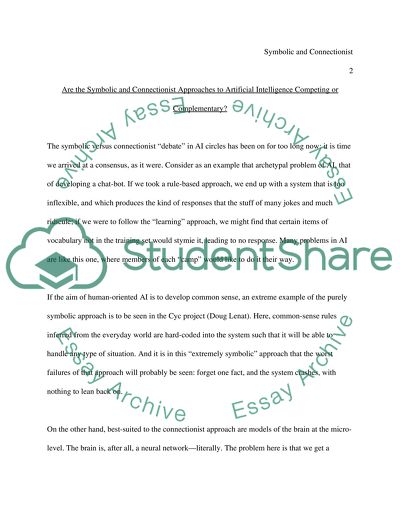Cite this document
(“Symbolic Debate in AI versus Connectionist - Competing or Complementar Essay”, n.d.)
Symbolic Debate in AI versus Connectionist - Competing or Complementar Essay. Retrieved from https://studentshare.org/information-technology/1533444-artificial-intelligence-essay
Symbolic Debate in AI versus Connectionist - Competing or Complementar Essay. Retrieved from https://studentshare.org/information-technology/1533444-artificial-intelligence-essay
(Symbolic Debate in AI Versus Connectionist - Competing or Complementar Essay)
Symbolic Debate in AI Versus Connectionist - Competing or Complementar Essay. https://studentshare.org/information-technology/1533444-artificial-intelligence-essay.
Symbolic Debate in AI Versus Connectionist - Competing or Complementar Essay. https://studentshare.org/information-technology/1533444-artificial-intelligence-essay.
“Symbolic Debate in AI Versus Connectionist - Competing or Complementar Essay”, n.d. https://studentshare.org/information-technology/1533444-artificial-intelligence-essay.


